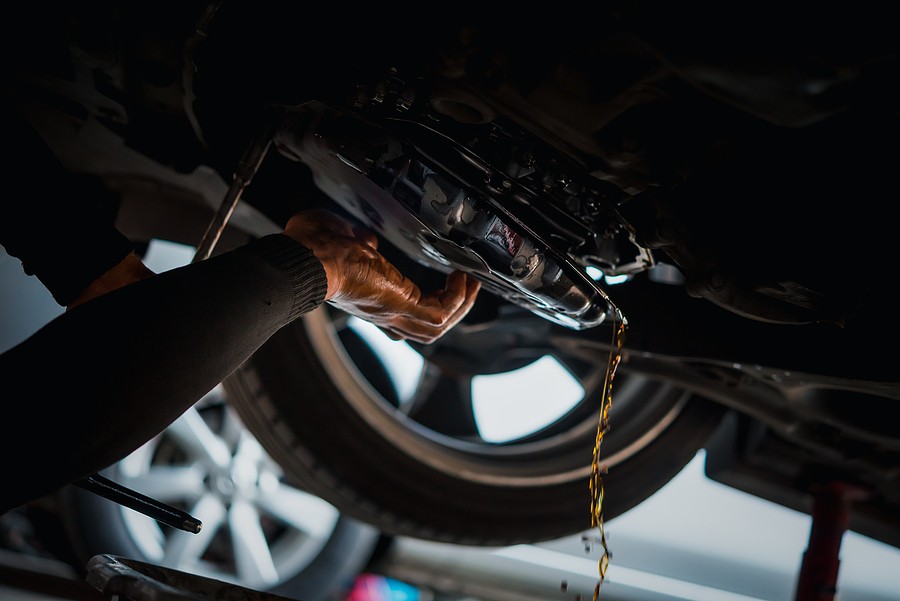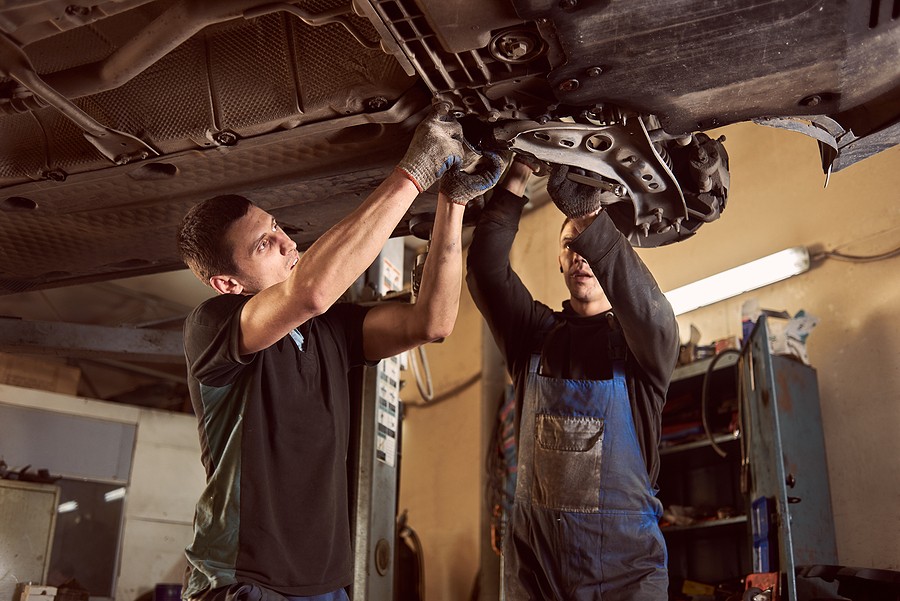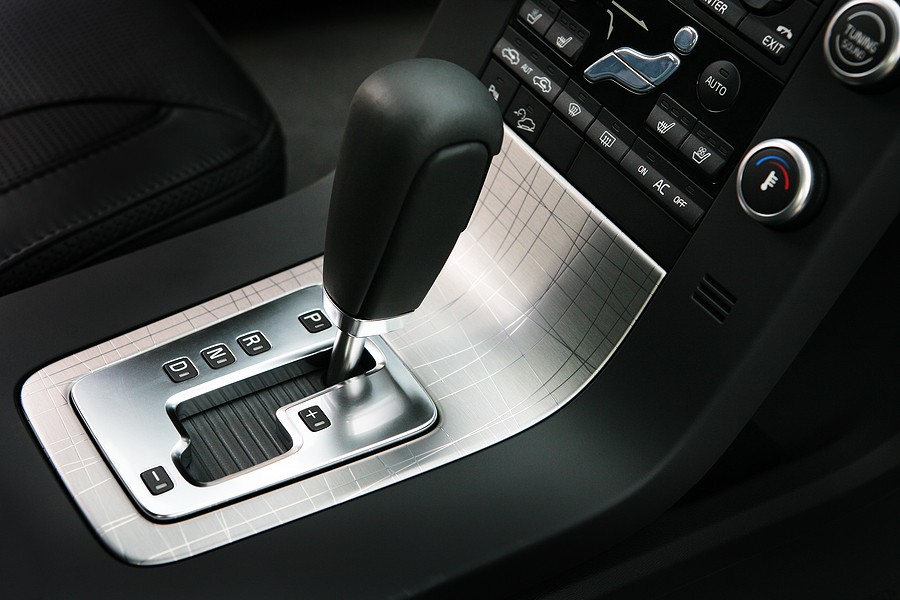If you're searching for “how to know if transmission fluid is leaking,” below is a step-by-step guide to:
- Prepare the necessary equipment
- Park and prepare
- Check the transmission fluid level
- Look for visual signs
- Inspect the transmission components
- Monitor the transmission operation
- Consult a professional
Fluid leaks cause a lot of problems in your car. Whether these fluids are coming from the motor oil, transmission fluids, steering wheel fluids, etc., there will always be a problem associated with this leak, so it is important for you, as a car owner, to address these leaks as soon as possible.
One of the common situations you might encounter is when your transmission is leaking its fluid. This might result in many problems that might sometimes cost you the entire transmission.
Understanding how to check on transmission fluid leaks and determine whether it's happening is a critical skill you must familiarize yourself with before you even spend your money consulting mechanics immediately.
This article provides step-by-step instructions to help me with the question, “How do I know if the transmission fluid is leaking?” If you confirm a transmission fluid leak, you must consult your mechanic to have him address the problem before it evolves.
How do we know if the transmission fluid is leaking?
Checking the transmission fluid leaks is not a very complicated job. If you follow the recommendations of many experts and watch a couple of YouTube videos, you should be able to address the problem and figure out whether you're dealing with a leak.
The following list serves as detailed guidance to help you answer the question, “How do you know if the transmission fluid is leaking?”
1- Prepare the necessary equipment
Before you start working on anything, I must have all the equipment ready. Otherwise, you'll see that the process will take more time than it should. Therefore, it's advised that you prepare the following tools:
- Newspaper or cardboard
- Safety goggles and gloves
- A flashlight
- If needed, Jack and Jackson
- Lint-free cloth
- Transmission fluid, if needed
- Transmission fluid dipstick if needed
- Your vehicle owner's manual
You might not need all this equipment, but some might be useful. For example, the Vehicle One meal is something optional. Still, it can help you locate some of the areas you're unfamiliar with, especially if you don't know where exactly the transmission fluid is checked and how to find the dipstick.

2- Park and prepare
Once you have all the tools and equipment ready, the next step is to get your vehicle parked and prepared. You don't want to work on checking the transmission fluid when the area is not horizontal and when the vehicle can move.
You need to confirm that the vehicle is secured properly and parked. You might need to engage the parking brake in some instances, especially if you're in an unhorizontal area or there are changes for the vehicle to move.
Then, you need to refer to your vehicle owner manual to confirm that you can locate the transmission and access the location to check the transaction level, if needed—fluid level.
3- Check the transmission fluid level
At this point, you should be ready to check on the transmission fluids level using the dipstick. You need to locate the dipstick, which might be in a different location if you're driving a manual versus automatic transmission vehicle.
Then, you must first remove the dipstick and wipe it with a clean cloth. After that, insert it inside the right location and take it out. You interpreted the dipstick results by checking first for the fluid level and seeing if it was at the right mark. You also need to check if the fluid doesn't have the right consistency and if the color does not represent a healthy transmission fluid.

4- Look for visual signs
In addition to checking the fluid level using the dipstick, you must also perform visual inspections. These are typically the easiest ways to confirm if you have a major leak. However, it's not the best for internal minor leaks you cannot detect immediately.
First, you can look at the floor underneath your car and see if there are any potential symptoms of fluid dripping from the areas where the transmission fluid is located. Then, you can look at the components around the bottom of the vehicle to see if there is any potential leak that happened previously and evaporated over time.
You can also visually inspect the hoses and the connections on the transmission fluid where it runs. This can help you determine if there are any potential weak seals where the fluid got out of the pathways.

5- Inspect the transmission components
In addition to checking for visual inspections, you can look at the transmission component spirit. If they're not in good shape, they can also lead to potential transmission fluid leaks. As you mentioned before, the hoses can be damaged, and there might be some visual indications that there are some damages that you need to address.
Your mechanic can be the best person to help you identify any potential components needing replacement. Sometimes, the transmission problems might be beyond repairs; in this case, you might have to install a new one or purchase a used one.
It's important that you know before any decisions to replace the transmission you need to evaluate the situation carefully and see if it's worth your investment or not. Some experts might recommend selling the vehicle rather than wasting time and money trying to fix it.

6- Monitor the transmission operation
Another way to confirm whether your transmission fluid leaks is by monitoring the vehicle's behavior. We indicate some symptoms of getting a bad transmission and potential leak spots. If you feel that the transmission behavior is not as good, then you have to consider consulting your professional, who can detect internal leaks.
For example, if the transmission cannot go into gears and there is some difficulty switching gears, it could be a potential problem with the transmission itself. Still, it could also indicate a problem with the transmission fluid level that might be linked to some internal leaks.

7- Consult a professional
Sometimes, you might feel that the transmission behavior is not good, but you cannot detect any potential leaks yourself. In that case, you need to consult your mechanic. They typically have certain tools and equipment that help them do a thorough inspection to confirm whether the transmission fluid is leaking somewhere or not.
Of course, they can also determine any potential problems that could have led to the transmission leak, and they can also determine any additional problems you need to address before things get out of hand.
Experts usually recommend that you get your mechanic to look at the vehicle every time you feel that the vehicle is not operating properly, whether this problem is linked to the transmission or anything else. Therefore, delaying this type of repair can cause things to evolve. If you don't want to invest a lot in repair costs, you can have your mechanic identify the early symptoms of potential future problems.

How do we know if the transmission fluid is leaking? Final Thoughts
The transmission fluid is a core fluid in your vehicle, and if it's not the right quantity and quality, you can easily deal with all sorts of problems that could cost you the entire vehicle. Therefore, you must understand potential problems, including identifying potential fluid leaks.
This article provided a step-by-step guide to help you answer the question, “How do you know if transmission fluid is leaking?” If you were able to confirm this, it is important to have your mechanic industrial problem as soon as possible before things get out of hand.
If you feel like your car is beyond repair and there are major problems, it's never too late to sell this vehicle and buy a better one. Are you looking for someone to buy your car, considering its problems? Call Cash Cars Buyer at 773-791-4363.
If you're interested in similar posts, we highly encourage you to visit our blog by clicking here.



